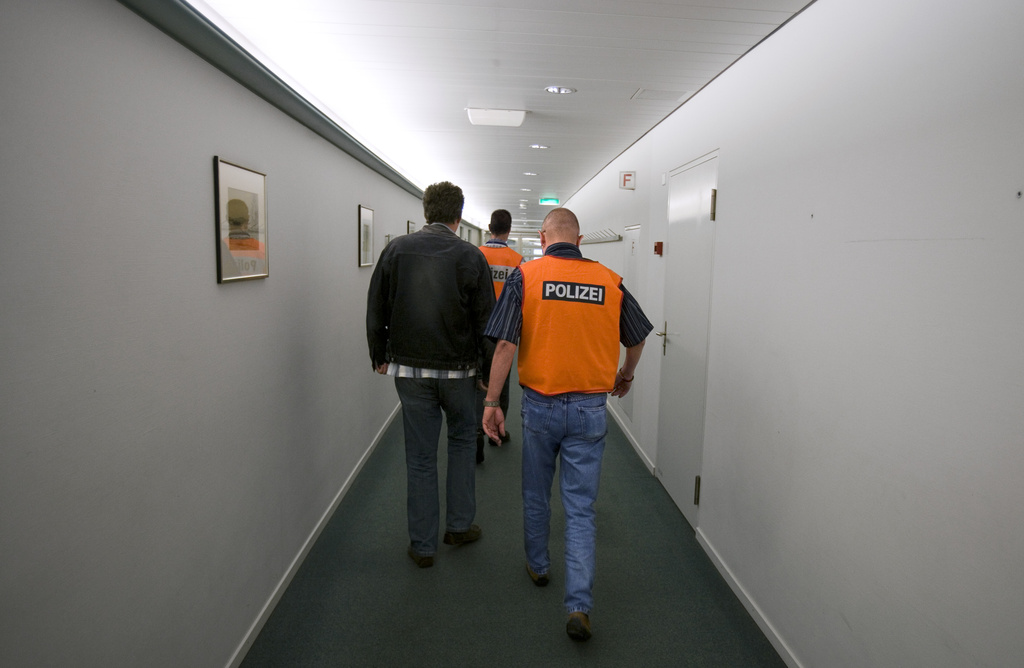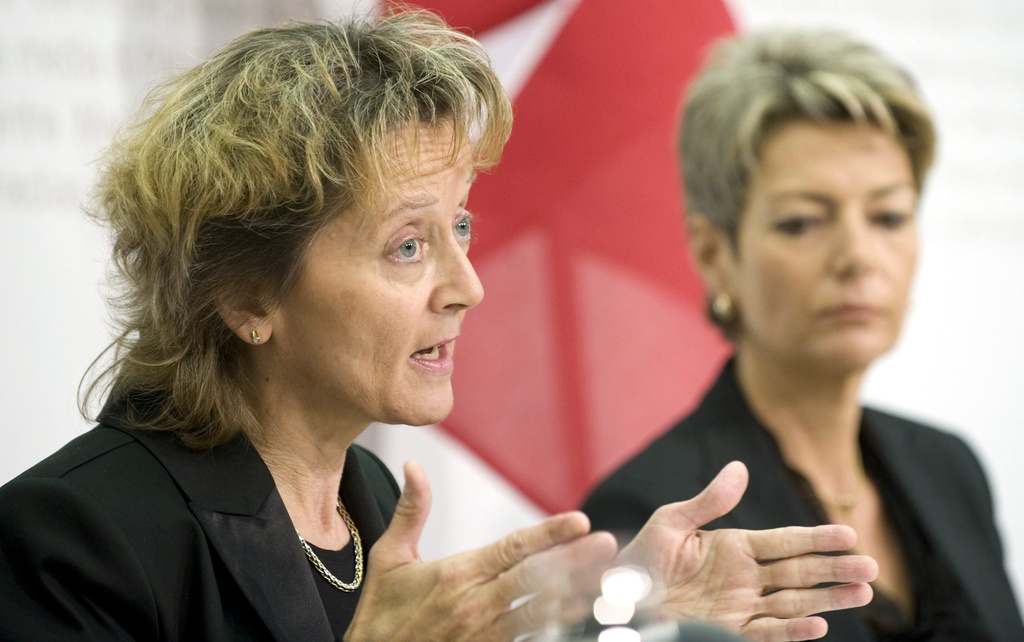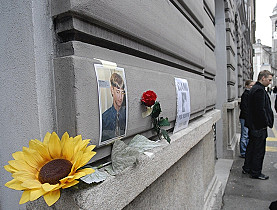Swiss set for heated campaign on expulsion vote

The campaign over controversial proposals to automatically expel criminal foreigners is gathering pace ahead of a nationwide vote on November 28.
At stake are an initiative by the rightwing Swiss People’s Party as well as a parliamentary counter-proposal calling for the deportation of convicted criminals without Swiss citizenship.
Six weeks before voters’ verdict is due, the main sides have launched their campaigns setting the scene for what could become heated debates over an issue of considerable public interest in Switzerland and also abroad.
The People’s Party – which had brought the issue to the fore more than three years ago – did not yet roll out its biggest guns for the official start of their campaign on Friday.
But the speakers present at a news conference in Bern did not beat around the bush.
“It is high time we set clear rules in Switzerland,” said a party vice-president Adrian Amstutz. “We have to pass a message that is understandable in all languages of the world.”
He added that the rights of the victims of crimes had to be rated about “those who beat, murder, rape and cheat on social security benefits”.
The People’s Party says about one in two crimes in Switzerland is committed by a foreigner and that expulsions are common among most other countries.
Other speakers dismissed allegations that the initiative was not compatible with the constitution and with international agreements. They also argued that many an honest foreigner in Switzerland had had enough of foreign criminals.
“The People’s party is not against foreigners, the People’s Party is against crime,” concluded Amstutz.
Counter argument
At a news conference at the beginning of the month Justice Minister Eveline Widmer-Schlumpf acknowledged the fight against crime was a major concern of the population, but she appealed to voters to reject the initiative.
Instead she called on them to support a counter-proposal offering a more specific definition of deportation crimes and respecting the constitution and international obligations.
“The initiative is not logical and consists of a rather arbitrary list of crimes. However, the counter-proposal ensures that there is no breach of the Swiss constitution, bilateral agreements with the European Union or international law,” she told journalists.
She added it was important to ensure that the cantonal courts practise a deportation policy that is more coherent and rigorous.
Widmer-Schlumpf said the counter-proposal was taking preventive steps by working to integrate foreigners better into society. “Good integration enables the prevention of crime,” she said.
Image
Most of the country’s 26 cantonal authorities, which enjoy considerable autonomy, have come out in favour of parliament’s counter-proposal.
Under current law, foreigners can be expelled but judges have a certain freedom to act.
Christian Lüscher, a member of parliament for the centre-right Radical Party from Geneva, who prefers the counter-proposal, says he is not concerned by potential damage to Switzerland’s image abroad.
He argues that the vote is part and parcel of direct democracy – similar to the contentious and highly publicised ballot on a minaret ban 12 months ago.
“That’s our system. You can launch an initiative, and we vote on the issue once enough signatures are gathered,” Lüscher told swissinfo.ch.
No and no
However, a committee of about 70 organisations mainly from the centre-left, including churches, charities and trade unions, strongly rejects both proposals.
They single out people who may have lived in the country for generations without acquiring Swiss citizenship, according to the committee.
“Both the initiative and the counterproposal discriminate against people who were born here,” Green Party parliamentarian Marlies Bänziger told a news conference.
The committee said the proposals go against constitutional guarantees of a fair sentencing and claim the current legal practice is deficient.
Campaigners said the existing tough laws were sufficient and Switzerland had repeatedly been reprimanded by the European Court of Justice.
Last June a majority in parliament approved the counterproposal and rejected the initiative. The debates also questioned its validity, but proposals to declare the initiative null and void were thrown out.
The initiative served as a key campaign tool for the People’s Party in the run-up to the 2007 parliamentary elections which saw the rightwingers come top with nearly 29% of the vote.
Posters used to collect the necessary signatures and showing white sheep kicking out a black sheep caused controversy in Switzerland and abroad.
The party is posting similar posters again and organised two major events in Geneva and Zurich at the beginning of November.
A first GfS opinion poll is expected next week.
The rightwing Swiss People’s Party launched the initiative in 2007. It was handed in with more than 210,000 signatures six months later.
The centre-right parties, including the Radicals, the Christian Democrats, as well as most of the country’s 26 cantons, support the parliamentary counter-proposal.
The Social Democrats and the Greens as a part of a broad alliance of centre-left groups reject both the initiative and the counter-proposal.
The initiative aims at the automatic deportation of foreigners convicted of serious crimes such as murder, rape, other serious sexual offences, violence such as armed robbery, drug trafficking, human trafficking, and breaking and entering. Welfare fraud is also included.
The counter-proposal has tightened the list to (among others): premeditated murder, murder, rape, aggravated armed robbery and serious violation of the drug law. Grievous bodily harm was added in by the House of Representatives. The counter-proposal states that deportations should respect the Swiss constitution and international law
Official 2009 prison sentence statistics:
Detainees: 6,084
Proportion of foreigners: 70.2%
Criminal foreigners awaiting deportation: 411

In compliance with the JTI standards
More: SWI swissinfo.ch certified by the Journalism Trust Initiative














You can find an overview of ongoing debates with our journalists here . Please join us!
If you want to start a conversation about a topic raised in this article or want to report factual errors, email us at english@swissinfo.ch.